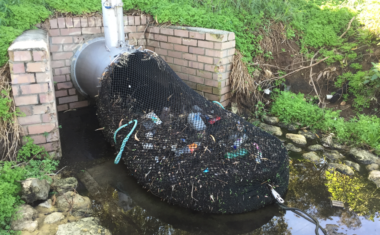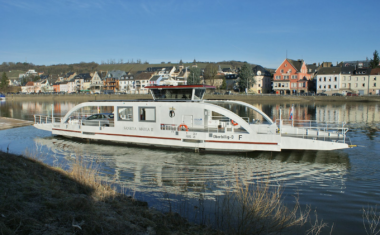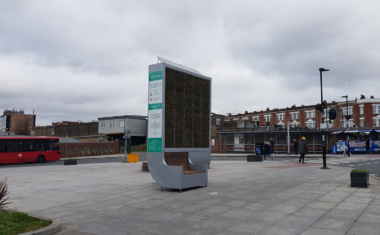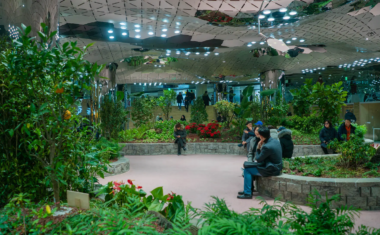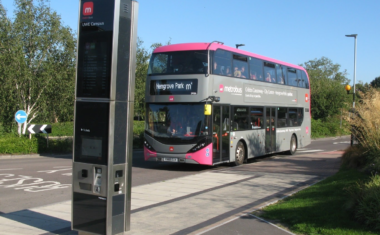Cape Town Water Strategy
- 2232
- 8 min to read
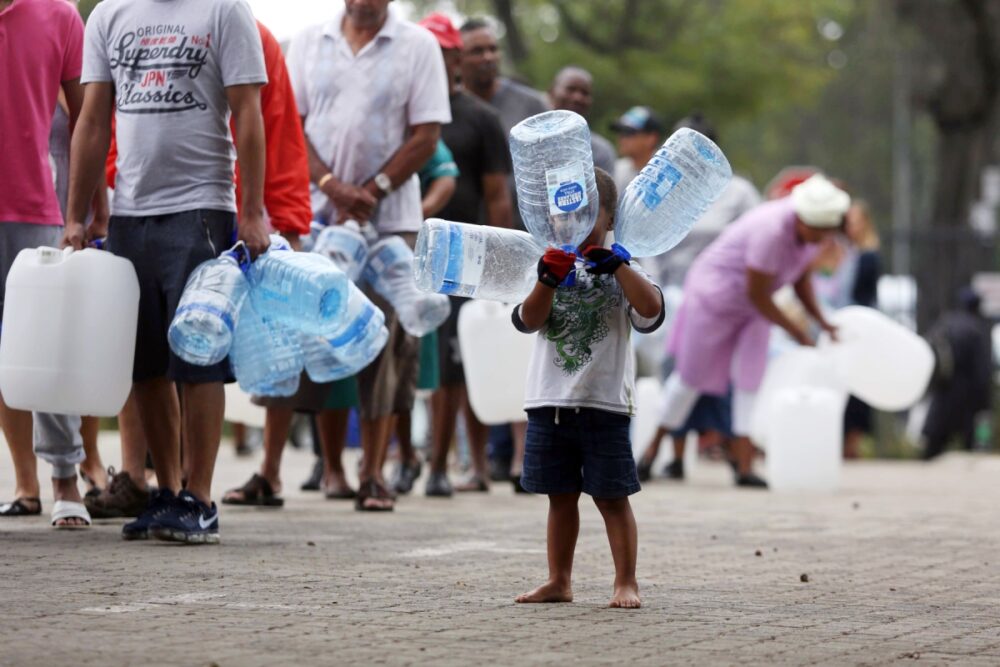
About the city. Cape Town became known around the world as a city that nearly ran out of water. In March 2018, at the height of a three-year drought (the worst on record), the dams supplying the city dropped to one-fifth full. A massive combined effort by residents and the City helped avoid a potential catastrophe by reducing water use.
Goal
The project aims to reduce water consumption, conserve and wisely use it in equal accessibility for the entire population.
Implementation period. This strategy was developed in the context of the severe three-year drought that Cape Town experienced from 2015 to 2017. The strategy was published in 2019 and is still being implemented.
Fact
According to the World Health Organisation, people need at least 50 litres of water per person each day to satisfy their basic needs – drinking, cooking, washing (ourselves and our clothes), flushing the toilet and other basic uses.
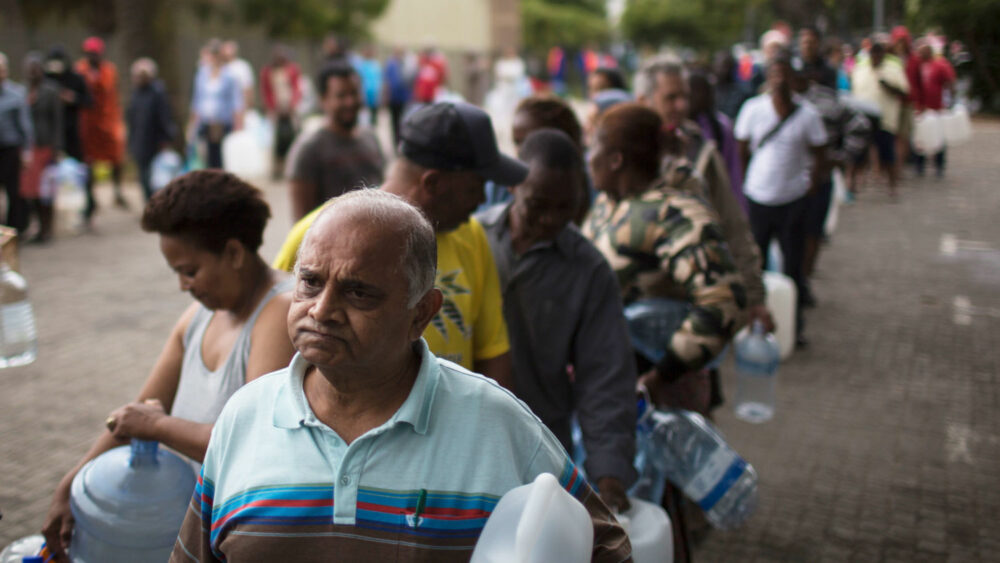
On average, actual water use by the households in the city is less than the basic-need amount: water is heavy to carry, and a household of four would need to carry 28 buckets of water every day to use 50 litres per person. Before the drought, in 2014/15, Cape Town used an average of 980 million litres of water per day. In 2001, the City developed a water conservation and water demand management policy and strategy based on the outcome of the integrated water resource planning study.
Solutions
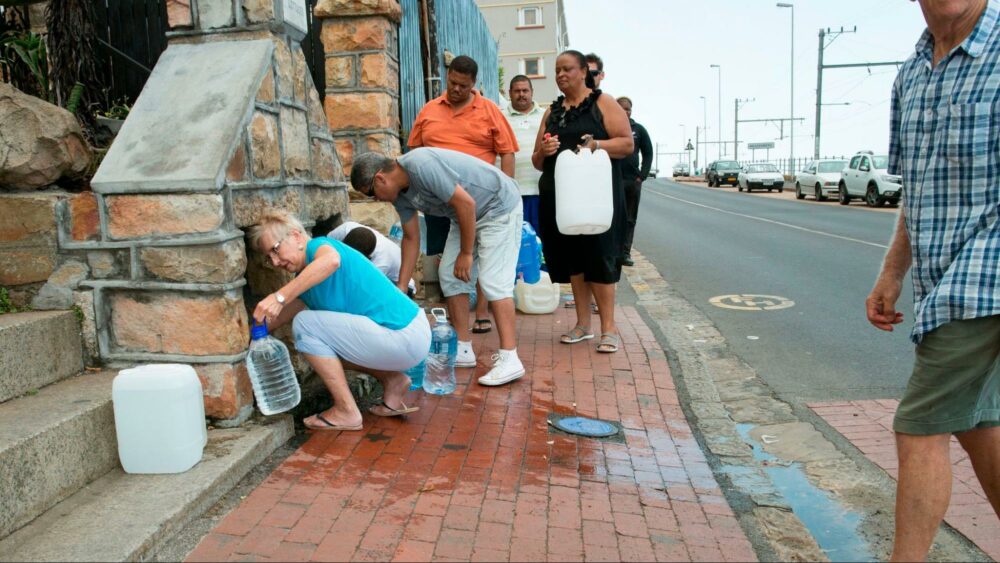
To achieve the vision of becoming a water-sensitive city, the work of the program follows five commitments:
SAFE ACCESS TO WATER AND SANITATION
The City of Cape Town metropolitan municipality works hard to provide and facilitate safe access to water and sanitation for all of its residents in terms of well-defined minimum standards. In particular, the City works with communities in informal settlements and with other stakeholders to improve the daily experience of access to water and sanitation, with an emphasis on building trust and increasing safety within these communities through this process.
WISE USE
The City promotes the wise use of water by all water users. This includes promoting water conservation behaviour through (a) pricing water regarding the cost of providing additional supply while retaining the commitment to provide a basic amount of water for free for those not able to afford this; (b) revising by-laws and planning requirements, and using other incentives to support water efficiency and the treatment and reuse of water; (c) supporting active citizenship by substantially improving customer management and engagement, and (d) managing the water network effectively to reduce losses and non-revenue water.
SUFFICIENT, RELIABLE WATER FROM DIVERSE SOURCES
The City is developing new, diverse supplies of water including groundwater, water reuse and desalinated water, cost-effectively and timeously to increase resilience and substantially reduce the likelihood of severe water restrictions in the future. The City is committed to increasing supply by building an affordable new capacity of approximately 300 million litres per day over the next ten years, and in suitable increments thereafter, in a way that is adaptable and robust to changes in circumstances.
SHARED BENEFITS FROM REGIONAL WATER RESOURCES
The City works with key stakeholders and partners, including other urban and agricultural water users and other spheres of government, to make the most of the opportunities to optimise the economic, social and ecological benefits of regional water resources, and to reduce the risks. The City does this through collaborative processes.
A WATER-SENSITIVE CITY
The City actively facilitates the transition of Cape Town over time into a water-sensitive city with diverse water resources, diversified infrastructure and one that makes optimal use of stormwater and urban waterways for flood control, aquifer recharge, water reuse and recreation, and is based on sound ecological principles. This is done through new incentives and regulatory mechanisms as well as through the way the City invests in new infrastructure.
https://www.youtube.com/watch?v=BN75ehWAcHY
Team
City of Cape Town, Water and Sanitation Department.
Timeline
Overall water use had reduced from 330 litres per person per day in 1998 to 220 litres per person per day in 2014. In 2018, water use was restricted to below 135 litres per person per day, which was a reduction of nearly 60% compared to 1998. Since August 2020 eight boreholes have been completed, and four boreholes are producing approximately 10Ml/day. Drilling of a further four deep production boreholes is underway which could increase yield to 30 million Ml/day.
Monwabisi temporary desalination plant was completed in September 2018 and was decommissioned in September 2020 after providing 4.3 billion litres of water over its 2 year contract period. Strandfontein temporary desalination plant was completed in May 2018 and was decommissioned in June 2020 after providing 3.8 billion litres of water over its two-year contract period.
If you notice an error or inaccuracy in our editorials, please email [email protected] so we can look into it.

